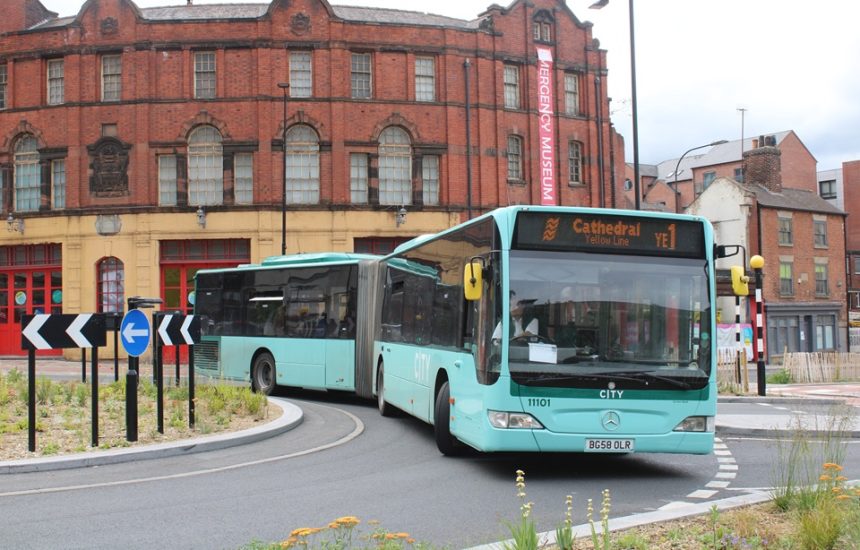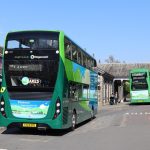Articulated buses temporarily returned to Sheffield for a week in May after rail replacement specialist City Transport delivered a service in lieu of part of the region’s tram network.
It was operated with support from A&A Coach Travel, Chaseside Propulsion and Lethers Travel. City Transport provided the replacement service directly to the South Yorkshire Mayoral Combined Authority in what the business says is its first time doing so for an end client rather than via an intermediary.
Six vehicles with a capacity of at least 80 were required for the Sheffield project. Three Mercedes-Benz Citaro G articulated buses were used. All were bought by City Transport from First Bus specifically for rail replacement, and the business has access to a further preserved example as required. Double-deckers were also utilised.
South Yorkshire saw regular articulated bus operation in the past, first with a batch of short-lived MAN examples and later with longer-lived Leyland DAB vehicles that lasted until 1999, according to the South Yorkshire Transport Trust, where one of the latter survives.
The Citaro Gs complement more conventional vehicles in the City Transport fleet. Managing Director James Fairchild says that the artics were sourced because of its work on both planned and unplanned rail replacement.
“By definition, serving stopping places near railway stations, particularly on an unplanned basis, necessitates going under bridges, some of which may be too high for a double-decker or a coach.
“Furthermore, despite deploying a bespoke low bridge alert system, we still need to mitigate the risk of low trees as much as possible, and these are a particular concern on roads that are not routinely served by high vehicles.”
The Citaro G fleet with City Transport satisfies Euro VI and has equipment to comply with the PSV Accessible Information Regulations. Passenger and driver air-conditioning is fitted, all of which was serviced before deployment in Sheffield.
Mr Fairchild adds that the business also supplied coordinators and managers who staffed both end points of the route, which proved useful when congestion caused delays.
“On the Wednesday PM peak, three separate traffic issues occurring concurrently told me that we need to abandon the timetable and focus on maintaining headway.
“Our driving team are used to operating flexibly in response to client needs, late running incoming trains for example, and so explaining that trip times, breaks and so on were to be adjusted slightly was no issue. After carrying some full standing loads out of the city centre, the traffic issues died down and we returned to diagrams.”
On the wider future of articulated buses, Mr Fairchild believes that there is “absolutely a place for them” under the franchised regime in the UK. South Yorkshire is among the areas to have already decided to proceed with reregulation of bus services.
At the same time that City Transport was providing rail replacement in Sheffield, a separate tram closure was covered by Wellglade Group business TM Travel, with which City Transport worked closely.



























